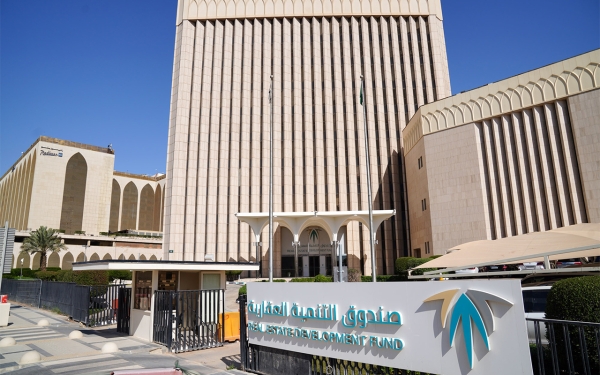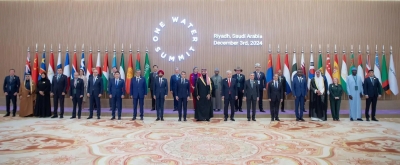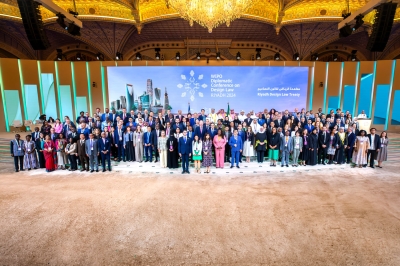

Real Estate Finance in the Kingdom of Saudi Arabia refers to lending operations provided to individuals by licensed financing entities in Saudi Arabia to purchase or construct residential units. The Real Estate Development Fund (REDF,) established by a Royal Decree in 2021, defines financing as the direct or subsidized real estate loans or guarantees offered by the fund to real estate developers and financing entities.
Real estate finance laws and regulations
Saudi Arabia has shown interest in real estate finance and has issued several laws and regulations to regulate this activity, intending to enable citizens to afford their own homes. In addition to REDF, the Real Estate Finance Law was issued by a Royal Decree in 2012 and defined real estate financing entities as commercial banks and finance companies licensed to engage in real estate finance activities.
Several financing solutions have been introduced to assist citizens in owning their homes, one of which is the subsidized mortgage. This residential real estate financing product is provided by REDF to beneficiaries through financing entities, with full or partial support from the fund's profits, via contracts established for this purpose.
REDF and citizen financing
Since its establishment, REDF has played a pivotal role in providing financing to citizens. As per the law, it is empowered to work toward real estate development in Saudi Arabia by disbursing profits from subsidized real estate loans, either in full or in part, to beneficiaries listed on the rosters of the fund or the ministry. It also provides loans to real estate developers and financing entities to achieve its objectives.
The law also mandates that REDF enters into contracts, partnerships, and agreements with any financing entity to provide subsidized mortgage loans or other products and initiatives. This comes in addition to concluding contracts, partnerships, and agreements with public and private entities to engage in or finance residential projects or residential complexes.
REDF has contributed to providing real estate financing to citizens. In the year 2020, the approved loan amount totaled around SAR5 billion, whereas loan reimbursements surged to approximately SAR10.3 billion, marking a notable 47.3 percent upturn from 2019. The cumulative outstanding loans by the conclusion of 2020 stood at about SAR155 billion, showcasing a marginal decline of 1.2 percent compared to 2019.
Real estate financing entities in Saudi Arabia
Saudi Vision 2030 has contributed to boosting real estate financing activities and home ownership. As a result, financing opportunities have expanded, enabling citizens to obtain real estate finance immediately from banks and financial entities without waiting. In addition, guarantees and necessary support are provided through the subsidized real estate finance product, and the number of new real estate contracts has achieved a historical growth rate.
Saudi banks have provided significant financing services. The real estate loans offered by these banks to individuals and companies continued to grow in 2020, reaching approximately SAR428.4 billion. This marked an increase of 44.1 percent (SAR131 billion) compared to the growth rate of 24.7 percent (SAR58.8 billion) in 2019.
To facilitate financing and offer multiple financing options, several entities have been licensed to engage in real estate financing activities in Saudi Arabia, including Riyad Bank, Amlak International, National Commercial Bank, Dar Al Tamleek, Saudi National Bank, Banque Saudi Fransi, Bank Albilad, Alrajhi Bank, SHL Finance Company, Saudi Investment Bank, Alinma Bank, Alawwal Bank, Bank Aljazira, Abdul Latif Jameel United Real Estate Finance Company, Bidaya Home Finance Company, Saudi Real Estate Refinance Company, Emirates NBD, and First Abu Dhabi Bank, and Deutsche Gulf Finance.
Real estate finance contracts
With citizens' growing interest in utilizing financing options for the construction and purchase of their residential units, there has been a significant leap in residential mortgage contracts for individuals in August 2021, with 27,398 new financing contracts representing a 24 percent increase over August 2020. The value of residential real estate finance also increased by 32 percent to over SAR13.3 billion, up from SAR10.1 billion in August 2020.
The growth in real estate finance transactions is evident in the statistics for the period spanning January to August 2021, with a total of 199,155 contracts provided by all banks and finance companies, amounting to SAR101 billion, reflecting a 10 percent increase in the number of contracts and a 21 percent increase in financing compared to the same period in 2020, which recorded 180,616 contracts worth over SAR83.4 billion.
Banks and real estate finance operations
Banks, as financial entities, account for the largest share of financing operations, contributing to 97.5 percent of total residential financing. Villa financing accounted for 78 percent of total financing in August 2021, totaling SAR10.3 billion. Residential apartments accounted for approximately 18 percent with around SAR2.5 billion. Land financing amounted to SAR527 million, representing 4 percent of the financing in August.
The start of 2020 marked a notable surge in overall real estate financing operations, achieving a remarkable expansion equivalent to the combined total of the preceding four years, with over 295,590 contracts valued at SAR140.7 billion. In 2019, real estate financing reached historical rates, exceeding 3.5 times the figure recorded in 2018, with approximately 179,217 contracts valued at SAR79.1 billion. By the end of 2018, mortgage loans had totaled about 50,496 contracts valued at SAR29.5 billion, and in 2017, there were approximately 30,833 contracts valued at SAR21 billion. In 2016, a total of 22,259 financing contracts worth SAR17 billion were signed.
Facilitated financing solutions
Numerous financing solutions and housing options have been made available through the Housing Program initiatives in the Saudi Vision 2030. These include ready-made units, self-construction, units under construction, and free residential lands, all with the goal of allowing Saudi families to own their first homes. More than 834,000 Saudi households have benefited from these solutions, including 310,000 families who have already moved into their homes. This exceeds the support provided by REDF over the past forty-two years when government support relied on a single ownership product: self-construction financing with a land requirement.
As a result of facilitating the accessibility of real estate financing, the previously lengthy fifteen-year waiting period following application submission has now been transformed into instant approval. This was achieved through the launch of the Housing Program, the development of financing solutions, and the improvement of procedures. Currently, citizens can benefit from housing products and obtain a real estate loan of up to SAR500,000 with a subsidy rate of up to 100 percent. The number of subsidized real estate loans within the Sakani program has reached 424,000 subsidized loans since its establishment in 2017 until 2020.
Saudi Central Bank control
Real estate financing operations are subject to the oversight and control of the Saudi Central Bank. The latter has the authority to regulate the real estate financing sector according to Article 2 of the Executive Regulations of the Real Estate Finance Law. It grants licenses to real estate finance companies to engage in real estate financing activities in accordance with the provisions of the law and the Finance Companies Control Law, as well as their Executive Regulations. The Central Bank also takes necessary measures to preserve the sector's safety, stability, and fairness of transactions. Additionally, it works to encourage fair and effective competition among real estate finance entities.
The Central Bank plays a vital role in Saudi Vision 2030 as a member of the Housing Program. It develops the legislative and regulatory environment as the regulator and supervisor of the real estate financing sector. In 2020, the Central Bank updated the standardized model for real estate financing contracts in both Ijara and Murabaha forms. It also granted the first license to a company involved in financing support activities and issued instructions for self-construction real estate financing provided to individuals.
The number of real estate financing entities in Saudi Arabia has increased due to the growing demand for real estate products and the appeal of real estate solutions for homeownership, along with a variety of housing choices. By the end of 2020, the total number of licensed finance companies reached forty-two, including six companies licensed for real estate financing activities and one company licensed for real estate refinancing activity.
Real estate refinancing
In line with the technological advancements in real estate financing activities and in pursuit of Saudi Arabia's housing ownership targets, Public Investment Fund established the Saudi Real Estate Refinance Company at the end of 2017. It serves as a cornerstone and a major catalyst for the growth and sustainability of residential real estate financing in Saudi Arabia. The company operates in the secondary market for real estate financing, representing a qualitative leap in the local housing market.
Saudi Real Estate Refinance Company has introduced innovative products and financing solutions, experiencing significant growth since its establishment. Its financing portfolio reached SAR6.5 billion in 2020, compared to SAR2.2 billion in 2019. In March 2021, the company issued local sukuk (Islamic bonds) backed by government guarantees worth SAR4 billion.
Related quizzes
Related articles

